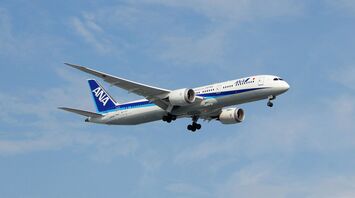ANA’s New AeroSHARK Technology Brings Environmental Benefits for Travelers

All Nippon Airways (ANA), Japan's largest airline, has introduced an innovative fuel-saving technology called AeroSHARK to its fleet. The airline has equipped its first Boeing 777 cargo plane with this sharkskin-inspired technology to reduce drag and increase fuel efficiency. This step is part of ANA's ongoing efforts to reduce carbon emissions and invest in sustainable aviation. The technology will soon be expanded to passenger aircraft, making ANA the first airline to apply this solution to both cargo and passenger planes.
For travelers, the introduction of AeroSHARK could lead to several positive changes. The fuel efficiency gained from this new technology may help reduce the environmental impact of flights, a growing concern for many eco-conscious travelers. As ANA continues to implement sustainability measures across its fleet, passengers can expect a more environmentally friendly flying experience without compromising on service or comfort.
By reducing fuel consumption, the airline may also be able to better manage operational costs, which could have long-term benefits for passengers in terms of ticket pricing. Additionally, ANA's use of AeroSHARK reflects the broader shift in the aviation industry toward greener solutions, which may influence other airlines to follow suit.
Building on similar advancements in the industry, ANA's move follows the introduction of the world’s first fully AeroSHARK-equipped fleet by SWISS International Air Lines earlier this year. This development has set a new standard in enhancing travel experiences through sustainability. ANA’s adoption of this technology signals a growing trend among leading airlines to prioritize eco-friendly solutions, providing travelers with more responsible choices in air travel.
With the future of travel becoming increasingly focused on sustainability, this move by ANA positions the airline as a forward-thinking leader in the industry. For passengers, it represents a step toward more responsible flying, with the potential for positive impacts on both the environment and the overall travel experience.



















